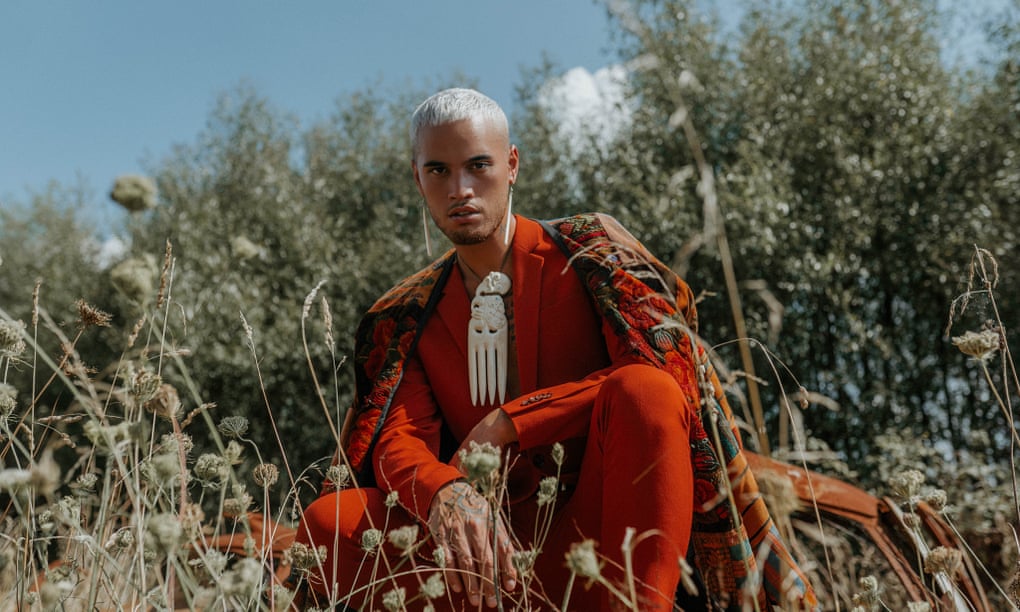From outrage to No 1 hits: how Maori musicians conquered the charts in their own language
Tess McClure in Auckland
@tessairini
Fri 4 Feb 2022 14.00 EST

Māori singer Stan Walker says he had to ‘build up the courage to be able to sing in my own language’. Photograph: Rāwhai Wetere
Once, singing in te reo Māori could trigger a backlash – now New Zealand’s indigenous language is at the heart of its music scene
. . .
For many of them, the moment has been a long time coming. “When I first got into the industry, it was a ‘never’ thing: it was never gonna happen. It wasn’t a matter of if, or when, or how – it just wasn’t going to happen,” says Walker, a mainstay of New Zealand pop and R&B, who released Te Arohanui last year. Despite learning to speak Māori as a child, he says: “I had to build up the courage to be able to sing in my own language.”
Runga didn’t learn to speak Māori as a child, and began exploring te reo translations of her music around two decades after her first album. “You feel quite cut off from your own culture – and in a way you’ve had to be cut off, in order to succeed and to thrive,” she says.
For years in New Zealand, te reo Māori was violently suppressed, and students who spoke it in school were often beaten. As a result, many did not teach their children the language, and the portion of speakers dropped precipitously, to sit at around 1 to 3% of New Zealanders.
“My grandparents were beaten for speaking their native tongue. My parents didn’t think anything of it because their parents never taught them,” Walker says. “My parents used to tell me, ‘the reo’s not going to get you anywhere, not going to get you a job’,” he says. “That’s what they were taught, and that’s all they knew.”
More:
https://www.theguardian.com/world/2022/feb/05/from-outrage-to-no-1-hits-how-maori-musicians-conquered-the-charts-in-their-own-language
~ ~ ~
Wikipedia:
. . .2017–2019: Stomach cancer, Stan & Faith Hope Love
In January 2018, fans of Walker expressed concern for his health after gaunt photos appeared on social media. In March, it was announced Walker had his stomach removed in September 2017 after discovering he inherited a rare cancer-causing gene mutation called CDH1 that has been responsible for the deaths of more than 25 of his family members. Walker said "The past nine months have been a life changing journey full of ups & downs to say the least, [but] all I'm gonna say is that I’m blessed to be alive and well." A feature-length documentary titled Stan was released in March 2018.[58][59][60]
On 26 March 2018, Walker released a 6-track self-titled EP. Upon its release, Walker said “This EP has songs I've written 11 years ago, 5 years ago, 3 years ago & now. All these songs were written in break even times in my life.”[61] On 7 December 2018, Walker released "Gimme Your Love" alongside the video which features a fly on-the-wall insight into Stan's National 2018 tour.
In May 2019, Walker released Faith Hope Love, an EP dedicated to the victims of the Christchurch mosque shootings.[62]
More:
https://en.wikipedia.org/wiki/Stan_Walker
